
Meghan Rosen is a senior writer who reports on the life sciences for Science News. She earned a Ph.D. in biochemistry and molecular biology with an emphasis in biotechnology from the University of California, Davis. Her dissertation work involved studying mutated proteins in liver and kidney cancer. She later graduated from the science communication program at UC Santa Cruz. Prior to joining Science News in 2022, she was a media relations manager at the Howard Hughes Medical Institute. Her work has appeared in Wired, Science, and The Washington Post, among other outlets. Once for McSweeney’s, she wrote about her kids’ habit of handing her trash, a story that still makes her (and them) laugh.

Trustworthy journalism comes at a price.
Scientists and journalists share a core belief in questioning, observing and verifying to reach the truth. Science News reports on crucial research and discovery across science disciplines. We need your financial support to make it happen – every contribution makes a difference.
All Stories by Meghan Rosen
-
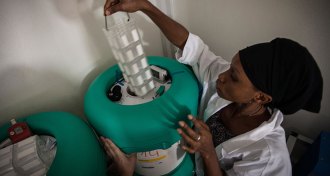 Health & Medicine
Health & MedicineEbola vaccine proves effective
The Ebola vaccine rVSV-ZEBOV proved effective at stopping the spread of the virus in a clinical trial in West Africa.
-
 Health & Medicine
Health & MedicineEbola vaccine proves effective, final trial results show
The Ebola vaccine rVSV-ZEBOV proved effective at stopping the spread of the virus in a clinical trial in West Africa.
-
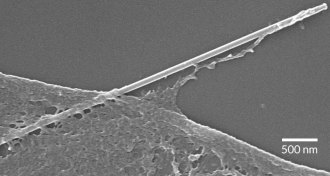 Tech
TechCells snack on nanowires
Human cells eat silicon nanowires in a process called phagocytosis. Nanowire-infused cells could be a step towards biological electronic devices.
-
 Health & Medicine
Health & MedicineBirth defects occur in 1 in 10 pregnancies with first trimester Zika infection
About 6 percent of U.S. women infected with Zika virus have infants or fetuses with birth defects, according to preliminary CDC results. For women infected in the first trimester, the number is even higher: nearly 11 percent.
-
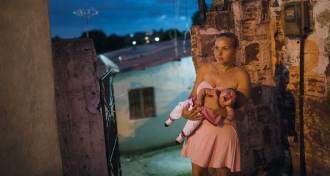 Health & Medicine
Health & MedicineYear in review: Zika virus devastates Brazil and spreads fear across Americas
The increase in microcephaly in Brazil has spread fear of Zika infection across the Americas.
-
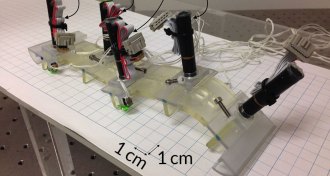 Tech
TechCaterpillar robot uses squishy, 3-D printed legs to inch and crawl
Squishy, 3-D printed legs help a caterpillar robot switch between inching and crawling, and offer sensory info about the world.
-
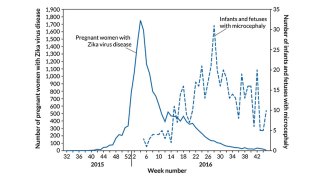 Health & Medicine
Health & MedicineMicrocephaly cases surge in Colombia following rise in Zika infections
More than 400 cases of microcephaly have been reported in Colombia this year, months after Zika virus infections peaked in the country.
-
 Health & Medicine
Health & MedicineMicrocephaly cases surge in Colombia following rise in Zika infections
More than 400 cases of microcephaly have been reported in Colombia this year, months after Zika virus infections peaked in the country.
-
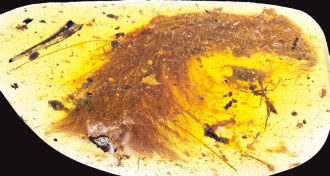 Paleontology
PaleontologyDinosaur tail preserved in amber, with feathers
The tail of a dinosaur trapped in amber includes both feathers and identifiable bits of bone.
-
 Health & Medicine
Health & MedicineOldest traces of smallpox virus found in child mummy
The oldest genetic evidence of smallpox comes from variola virus DNA found in a child mummy buried in a church crypt in Lithuania.
-
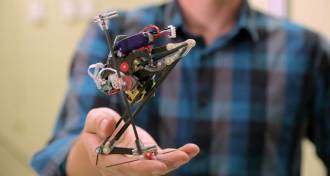 Tech
TechZippy new jumping bot catches air again and again
Leaping robot can bounce from floor to wall, parkour-style, and, like a bush baby, uses a “super-crouch” to get extra oomph out of jumps.
-
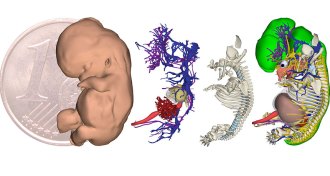 Health & Medicine
Health & MedicineDatabase provides a rare peek at a human embryo’s first weeks
A new 3-D atlas charts the growth of each and every organ in the developing human embryo, from the heart to the gut to the brain.